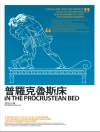In ‘Biographies of Working Men, ‘ Grant Allen presents a compelling and nuanced exploration of the lives and struggles of the working class during the late 19th century. Through a series of biographical sketches, Allen employs a vivid literary style that intertwines social commentary with personal narratives, effectively illuminating the systemic challenges faced by laborers in an industrializing society. Each biography serves not merely as a recounting of life stories but as a critical reflection on the social injustices and economic inequalities that pervaded the era, positioning the work within the broader context of the emerging labor movement and social reform movements of the time. Grant Allen, a notable figure in both science and literature, was deeply influenced by his background as a naturalist and a social critic. Having worked in various fields, including biology and education, Allen’s multifaceted experience informed his advocacy for the working class and his desire to shed light on their often-overlooked contributions to society. His commitment to social issues is evident throughout the book, revealing his empathetic approach to the subjects he portrays. ‘Biographies of Working Men’ is essential reading for those interested in social history, labor studies, and the evolution of class dynamics. Allen’s meticulous research and engaging storytelling invite readers to empathize with the struggles of individuals whose stories resonate with contemporary issues, making this work both a historical document and a timeless call for social justice.
Yazar hakkında
Grant Allen (1848–1899) was a prominent Canadian science writer and novelist, known for his pioneering ideas and contributions to evolutionary biology and social commentary. Allen, born near Kingston, Ontario, held a stance ahead of his time on many social issues, including women’s rights. He was educated at King Edward’s School in Birmingham and later at Merton College, Oxford, where he developed a diverse set of interests that would influence his wide-ranging literary career.
Allen’s work ‘Biographies of Working Men’ (1885), demonstrates his commitment to the acknowledgment of working-class heroes, echoing his broader interest in social and scientific progress. His literary style often intertwined didacticism with entertainment, aiming to educate the reader while keeping them engaged. Allen’s other notable works include ‘The Evolution of the Idea of God’ (1897), in which he hypothesized the anthropological development of religious concepts, and the controversial novel ‘The Woman Who Did’ (1895), advocating progressive ideas about women’s autonomy and sexual freedom. His forward-thinking views on societal norms permeated his novels and non-fiction alike, making his writings relevant to discussions on social evolution and the role of science in cultural development. Overall, Grant Allen’s legacy is that of a versatile writer who used his pen as a tool for societal education and scientific discourse.












